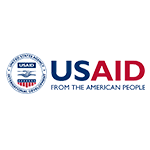Encouraging Counseling that Promotes Meaningful Choice in Malawi
HIGHLIGHTS
- Despite recent gains in the use of modern contraceptives around the world, many women are still dissatisfied with their family planning (FP) methods and discontinuation remains high.
- In close collaboration with health workers, postpartum women, implementers, and policymakers in Malawi, we developed a package of solutions to facilitate women’s informed choice and access to unbiased FP counseling.
- Findings from a pilot test showed the low-cost solutions increased provider knowledge about postpartum FP, improved provider attitudes towards method switching, and increased FP referrals.
The Challenge
High-quality family planning (FP) counseling plays a critical role in facilitating a woman’s informed choice. Around the world, women receive counseling that is rushed, does not address their concerns, or may steer them towards methods that do not suit their needs. When counseling does not promote meaningful choice, many women may discontinue use of their contraceptive method, which often results in unintended pregnancies. In Malawi, 37% of women who started a method discontinued within 12 months and the discontinuation rates were highest for pills and male condoms at 62% each.
Our Approach
Under the USAID-funded Breakthrough ACTION project, we worked in partnership with the Organized Network of Services for Everyone’s (ONSE) Health Activity project and the Ministry of Health of Malawi to address the problem of discontinuation and method dissatisfaction with a focus on provider behavior. Our formative research highlighted that providers often deliver biased and inconsistent information on each FP method and rely on protocols to efficiently deliver counseling but do not always account for unique client needs.
We used these insights to facilitate a co-creation process that led to the following behavioral solutions:
- An interactive, gamified counseling tool with dice and method discussion cards for group counseling.
- A method referral card and accompanying tracking system.
- A visual antenatal care (ANC) handout.
- A behaviorally-informed reference sheet for postpartum FP counseling.
More information on these solutions can be found here.
Results
We evaluated the solutions in a pre/post study, which aimed to assess the feasibility of the solutions and the potential impact. In our implementation sites, there was an increase of 34 percentage points in effective referrals for women to take up FP methods, a 63 percentage point increase in providers discussing method switching with women, and increases in provider knowledge related to postpartum FP.
Both community-based health workers and facility-based providers found the solutions helpful in conducting FP counseling, stating “[Women] are asking more questions [about FP] than before.” During the evaluation, we also found that the ANC passport insert showed promise of impact and was desirable by providers. For example, providers noted, “It is quick. It is really helping begin a conversation about FP.” Another provider noted, “Women are demanding it…We have even run out of it.”
Takeaway
Providing effective FP counseling, especially just before and during a woman’s postpartum period, is key to ensuring women are aware of their options for healthy child spacing and able to choose the FP method that most aligns with their needs. Improved FP counseling is linked to higher method satisfaction and reductions in discontinuation. This evidence-based, low-cost solution set holds promise to equip busy providers with the tools they need to promote meaningful choice in family planning.
Interested in our work applying behavioral science to global health? Email gh@ideas42.org or tweet at @ideas42 to join the conversation.
Partners











